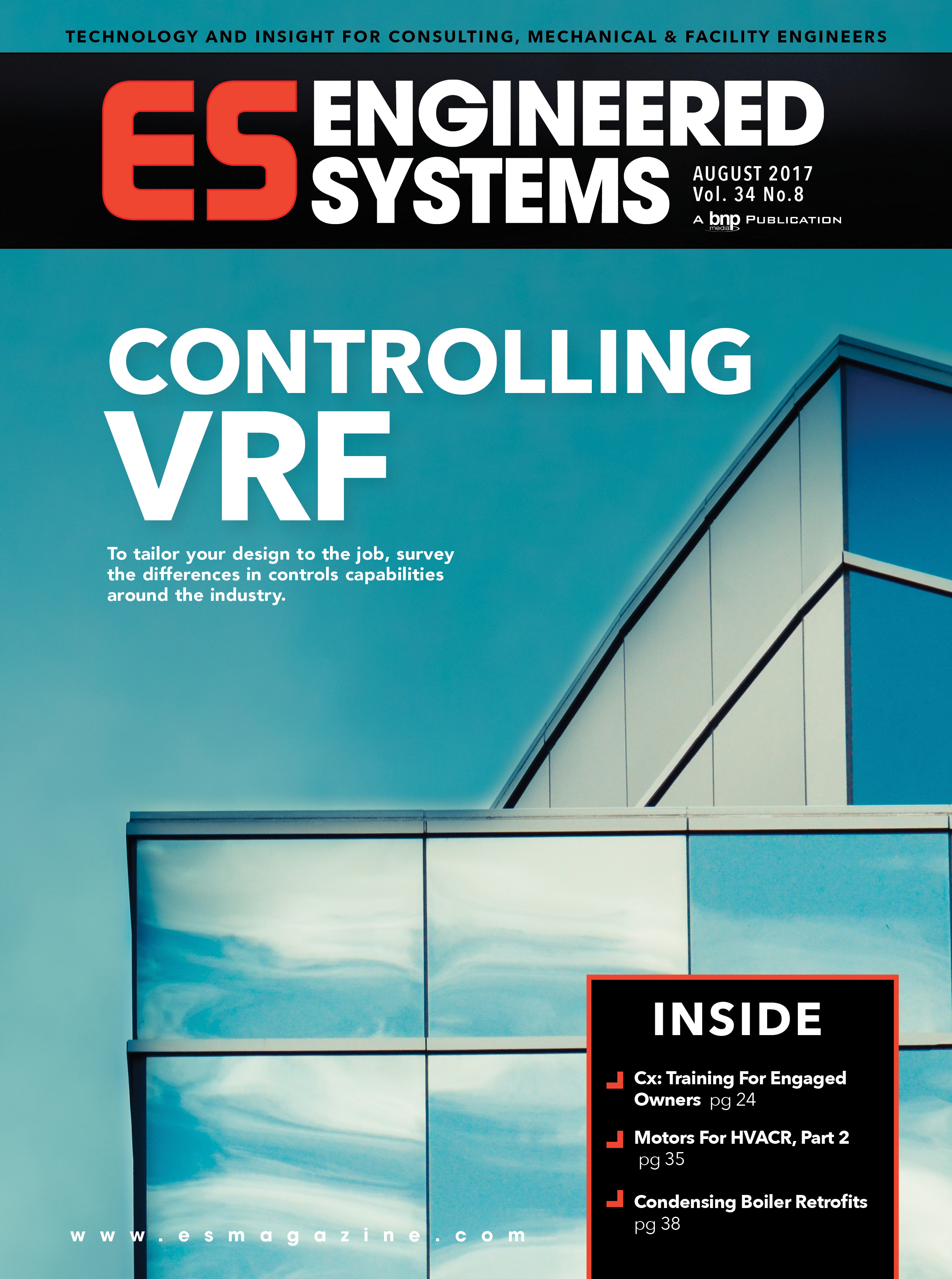Feedback From The Field
One of the eye-opening "lessons" was articulated by the mechanical contractor. The contractor's corporate-level representative stated that it was critical to have executive level oversight of and buy-in to the commissioning process from the contracting firm. The remarkable aspect of this comment is that it originated with the contractor himself and was not a criticism of the contractor by another team member.This was a contractor whose field personnel were, from the commissioning consultant's perspective, somewhat resistant to playing their defined role in the commissioning process. We struggled with this through much of the project, and it wasn't until we were well into verification testing at the end of the job that the entire commissioning team met to discuss the issues and conflicts brewing between team members. This meeting was initiated by the executives of the mechanical construction company, because news was trickling up to them that the commissioning process was running amuck.
This meeting was successful because the construction executives wanted to be seen as team players and wanted the commissioning process to be smoother. I can only guess that their motivation was a combination of wanting to keep the building owner happy and wanting to finish the project as quickly and efficiently as possible.
The results of the midtesting meeting were both short-term and long-term improvement of relationships and cooperation. Short term, we were able to stop pointing fingers and dragging feet and start making positive progress on resolving technical issues on the job. Long term, the construction company executives remained informed as to the progress of commissioning and communicated internally to their field personnel that commissioning needed to be taken seriously.
The Gravity Of Leadership
As I've thought about the construction executive's "lesson learned," I think it must apply to all other members of the commissioning team.
- Owner: If top level management within the building owner's organization does not believe in or support commissioning, it is not likely to survive long within that organization. The owner is the focal point of commissioning, and if the powers-that-be don't value commissioning, that message will eventually be sent to the ranks. People working for the managers will not have any motivation for doing commissioning well and will want to concentrate their efforts on tasks their superiors really want them to do.
- Designers: If the design firm principals do not support the firm's participation in the commissioning process, our experience is that it is very difficult to get the designers to respond to issues and produce their required deliverables - on time or any time.
- Contractors: As noted in the example above, once the "management" of the construction firm learned about and decided that willing participation in the commissioning process was beneficial to its company, that message was sent in no uncertain terms to the field personnel, and progress and attitudes changed significantly.
- Commissioning Consultant: It may seem obvious that a commissioning services provider would have top-level support for those services. However, that is not necessarily the case, especially these days when more and more people are venturing into the commissioning business. Mid-level employees may want to go out and do commissioning, but unless that decision is supported by the principals of the firm, their availability and reliability to complete specific projects and sustain the commissioning services business is at the whim of the principals.
In summary, with something as new and different and nontraditional as commissioning, it is important to have high-level support from each organization involved in the process. If the leaders don't lead, then the implementers won't follow. ES


